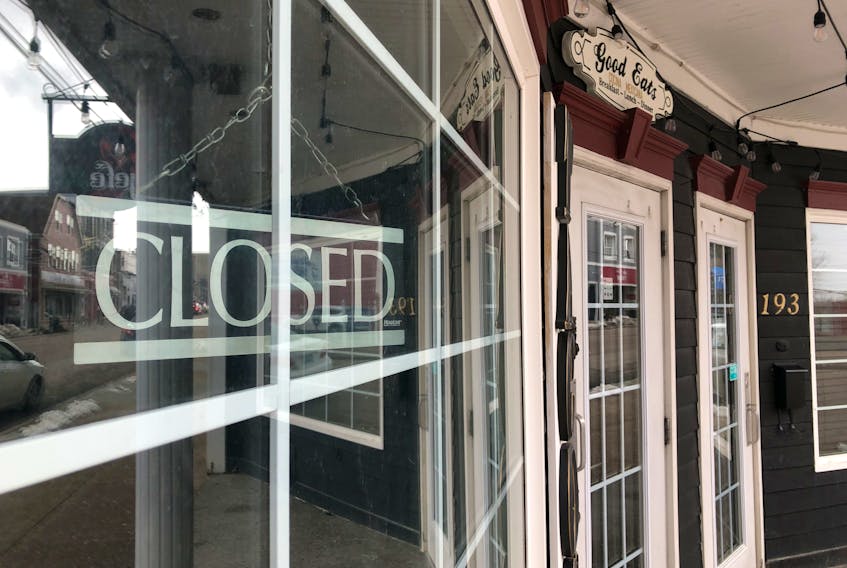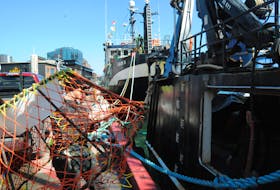SYDNEY, N.S. — A recent survey from Restaurants Canada indicates that nearly all foodservice businesses are concerned with current debt levels, and many won’t survive the impacts of COVID-19 without longer-term solutions.
Locally, it's not just restaurants concerned with debt these days, according to the Cape Breton Regional Chamber of Commerce. Rent and other costs are among the concerns often put forth by chamber members.

“Rent absolutely has come up a number of times,” said Kathleen Yurchesyn, CEO of Cape Breton Regional Chamber of Commerce, who at the time of the interview said the chamber was awaiting details on a rental assistance program alluded to by the federal government.
Initial impressions were that it would be similar to an assistance program spearheaded by the province that allows for a deferral agreement between a tenant and landlord.
The federal government rolled out the Canada Emergency Commercial Rent Assistance (CECRA) for small businesses this past weekend that provides forgivable loans to commercial property owners who in turn lower the rent of their tenants.
Businesses who recently opened or had plans to open in the coming months are top of mind for the local chamber. Some invested in infrastructure or capital costs but currently have no money coming in.
In addition, Yurchesyn said seasonal operators, not just tourism-related ones, are feeling left behind. These are businesses that make more than 80 per cent of their total annual revenues between May and October.
“One of the things they have brought forward and I have presented to other groups is the idea of the extension of the 75 per cent wage subsidy,” she said in reference to the federal COVID-19 coping measure.
“I obviously recognize the criteria likely will be tightened in the recovery phase of this but that would significantly help businesses get back on their feet if they could get the wages of their employees covered for a period of weeks as they begin to make regular revenues.”
Rent and other issues and challenges shared by small businesses across the country are the subjects of several virtual discussions the chamber engages in with federal and provincial entities each week.
There are three weekly calls with the province’s economic and labour coalition and a daily call with Mary Ng, the federal minister of Small Business, Export Promotion and International Trade.
Those conversations, according to Yurchesyn, are business specific and about the urgent needs of businesses trying to survive the realities of the current economic climate.
Conversations at the federal and provincial level are also about a stabilization and a recovery phase, which she believes the country is moving towards.
“There are still gaps and issues we are advocating for that we still need to be addressed,” she said.
“Really, as the conversation is around recovery, it’s really important to us to ensure those are top of mind and not being missed.”
SURVEY AT A GLANCE:
- 75 per cent of survey respondents said they are either very or extremely concerned about their current level of debt.
If conditions don’t improve over the next three months:
- One out of every two independent restaurants does not expect to survive.
- Most multi-unit foodservice businesses will have to permanently shut down at least one of their locations.
- At least three quarters of respondents identified rent as a main source of debt for their operations.
SOURCE: Restaurants Canada survey
No one knows what recovery looks like right now, she said, or what businesses will be recovering from until some of the current social isolation measures are lifted.
“But we are definitely tossing around ideas now with the business community as they look to recover and reopen. What kind of supports will be required for them to kind of hopefully recoup some lost revenue but allow them to get back on their feet a little easier.”
Seventy-five per cent of the Restaurants Canada survey respondents said they are either very or extremely concerned about their current level of debt.
The survey also indicates that half of every independent restaurant does not expect to survive if conditions don’t improve over the next three months.
While all levels of government have made extraordinary efforts to respond with emergency relief measures, a press release from Restaurants Canada states that food establishments are going to need more support as part of a transition to recovery.
“COVID-19 has taken a devastating toll on small businesses, with restaurants being among the hardest hit,” said Shanna Munro, the Restaurants Canada president and CEO, in a press release.
“Even once restrictions are eased, they’re still going to need help to avoid closing down due to crushing levels of debt.”









